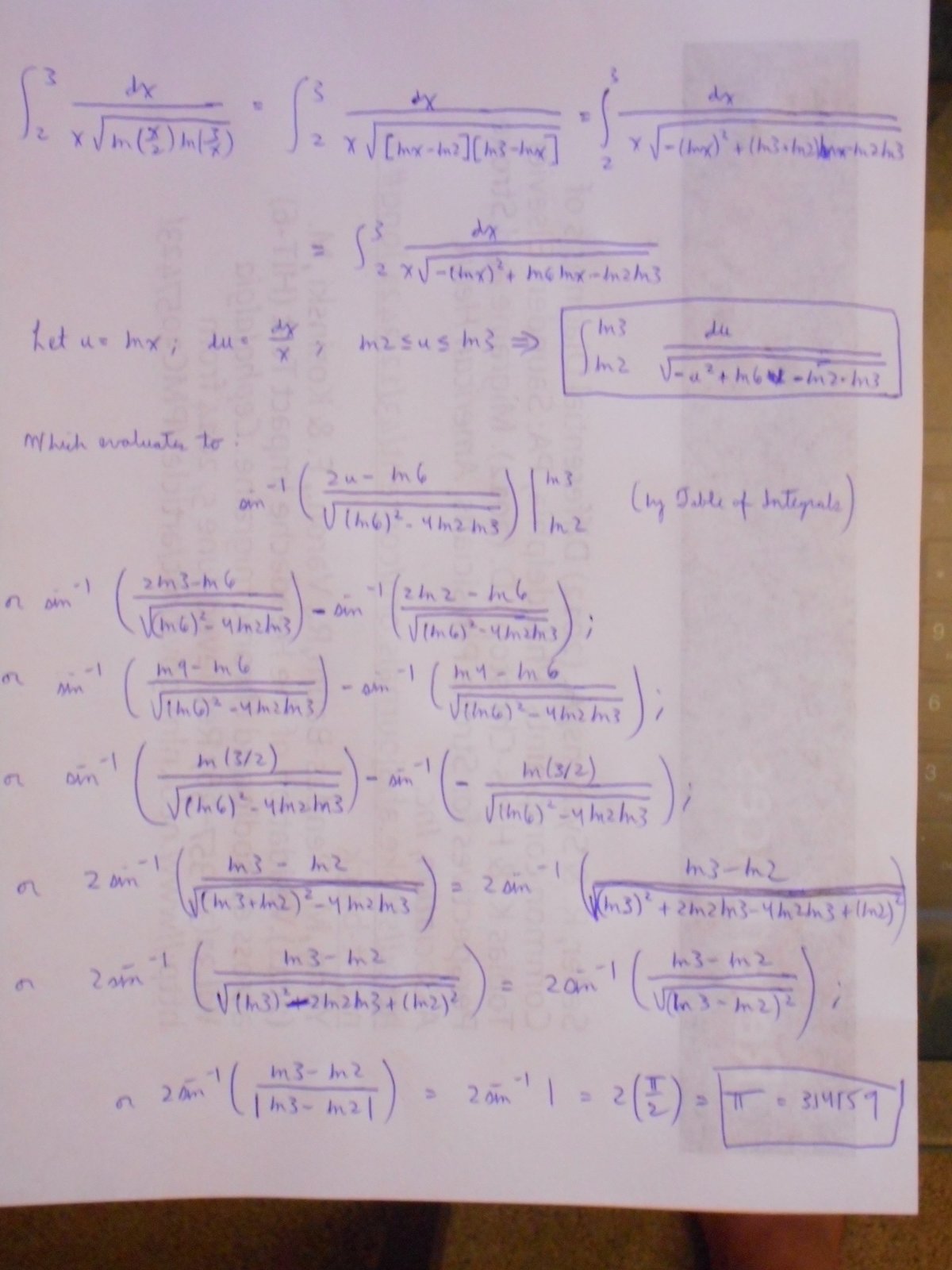Very much interesting
∫ 2 3 x ln ( 2 x ) ln ( x 3 ) d x = ?
The answer is 3.1415.
This section requires Javascript.
You are seeing this because something didn't load right. We suggest you, (a) try
refreshing the page, (b) enabling javascript if it is disabled on your browser and,
finally, (c)
loading the
non-javascript version of this page
. We're sorry about the hassle.
2 solutions
Some u-substitution.....enjoy
 !
!
Your solution is great...but the picture quality is poor. I cannot see properly.
Let us first substitute ln ( x ) = t
So we have the following integral:-
∫ ln ( 2 ) ln ( 3 ) ( t − ln ( 2 ) ) ( ln ( 3 ) − t ) 1 d t
Now I would like to prove a result of the Beta Function :-
Let us consider the integral
∫ a b ( x − a ) m − 1 ( b − x ) n − 1 d x
Substitute y = b − a x − a .
We get:-
( b − a ) m + n − 1 ∫ 0 1 y m − 1 ( 1 − y ) n − 1 d y = ( b − a ) m + n − 1 B ( m , n ) where B ( m , n ) denotes the beta function
So in the integral given in the question we have a = ln ( 2 ) , b = ln ( 3 ) and m = n = 2 1 .
So we have the answer as :- ( ln ( 3 ) − ln ( 2 ) ) 2 1 + 2 1 − 1 B ( 2 1 , 2 1 ) = B ( 2 1 , 2 1 ) = Γ ( 1 ) Γ ( 2 1 ) Γ ( 2 1 )
Here Γ ( . ) denotes the Gamma Function and we know that Γ ( 2 1 ) = π
So our answer is Γ ( 2 1 ) Γ ( 2 1 ) = π ≈ 3 . 1 4 1 5